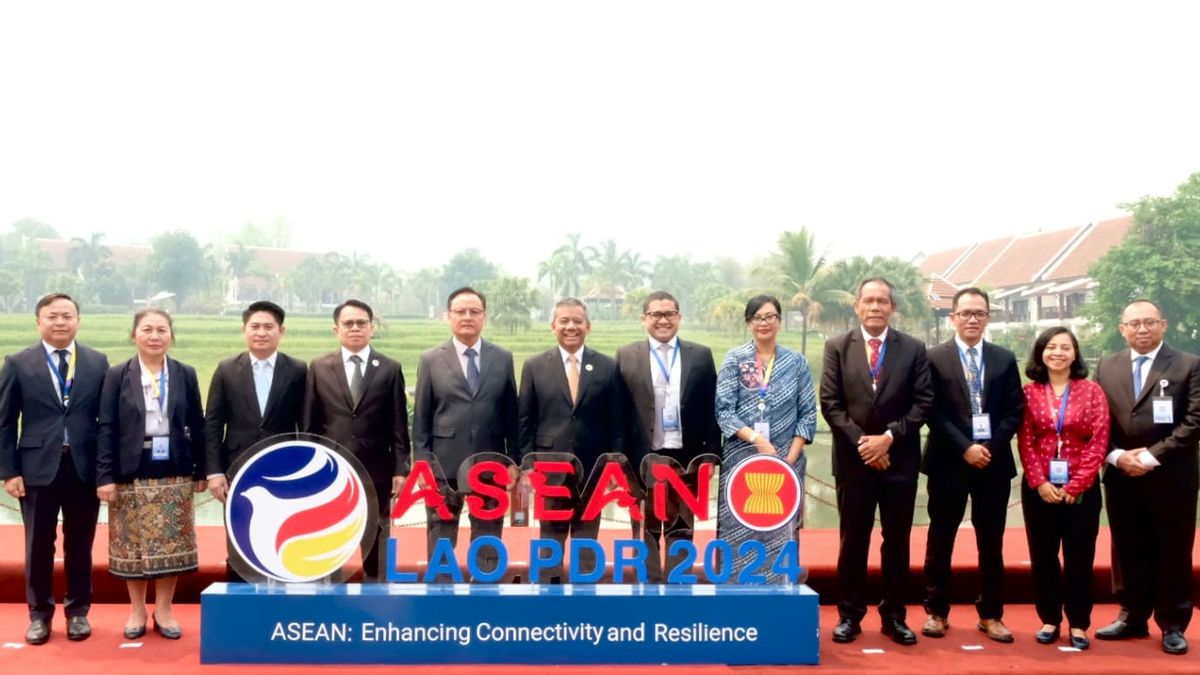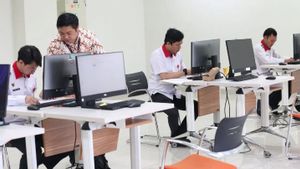JAKARTA - As an effort to strengthen climate action, Indonesia plays an important role through leadership of the Coalition of the Minister of Finance for Climate Action (CFMCA). Meanwhile, this coalition aims to strengthen capacity, exchange of knowledge, and the best practices in integrating climate action into macroeconomic and fiscal policies.
Deputy Minister of Finance (Wamenkeu), Suahasil Nazara said Indonesia believes that the Coalition of the Minister of Finance for Climate Action (CFMCA) can serve as an excellent forum to build the best capacity, knowledge exchange, and practice on how to include climate action into macroeconomic and fiscal policies in the role of the Coalition of the Minister of Finance.
"As well as to collaborate in strategies to integrate climate change in economic and financial policies," he explained in an official statement, Thursday, April 4.
As part of this initiative, in 2023 Indonesia has produced guidelines "Strengthening the Role of the Ministry of Finance in Encouraging Climate Action" as a result of a large collaboration between various stakeholders.
Suahasil conveyed this guide provides a framework on how the Ministry of Finance can include climate action into economic strategy, fiscal policy, and budget management.
In addition, three cross-workstreams focused on nature, adaptation, and green transition have also been formed by CFMCA. This workstream aims to facilitate discussion, capacity building, and implementing sustainable policies related to climate action.
CFMCA under the leadership of the Indonesian Minister of Finance, Sri Mulyani Indrawati has succeeded in connecting 92 member countries with 26 institutional partners, including the Asian Development Bank (ADB), the International Monetary Fund (IMF), the World Bank, the United Nations Development Program Agency (UNDP), and others, to help build policies that support climate action.
Indonesia, as one of the leaders in the CFMCA, has shown a strong commitment to climate action through a number of structural reforms carried out.
Meanwhile, from institutional reforms after the 1998 Asian Financial Crisis to the steps taken after the 2009 Global Financial Crisis, Indonesia has moved forward in strengthening the financial sector and implementing disciplined and consistent rules in its fiscal policy.
Suahasil conveyed that the challenges faced had been seen as an opportunity to accelerate reform. Indonesia is determined to direct investment to sustainable sectors and green technology, as well as strengthen policies that support the transition to a low-carbon economy.
According to Suahasil, Indonesia's main strategy of facilitating the green transition includes strengthening the implementation of nationally determined economic sector contributions in the Nationally Determined Contribution (NDC), encouraging investment in renewable energy, and asking for international support to close climate funding gaps.
Suahasil said Indonesia is ready to utilize renewable energy sources to reduce dependence on fossil fuels.
" Simultaneously, we are also strengthening existing policies such as the Signing of the Climate Budget (CBT), green financing mechanisms, carbon markets, Indonesian Environmental Funds, and various partnership schemes aimed at attracting green investment such as the development of energy transition financing through the energy transition mechanism (ETM) scheme," he said.
SEE ALSO:
According to Suahasil, as part of a comprehensive transition mechanism, Indonesia will begin to introduce a carbon tax for coal-fired power plants.
In addition, through the framework of low-carbon development and active participation in platforms such as ASEAN Climate financial policies under ADB, Indonesia together with other CFMCA member countries are ready to address climate risks and accelerate change towards a sustainable economy.
Suahasil conveyed that the various efforts of CFMCA member countries and cooperation with institutional partners will help face the challenges of climate change and create a better future for future generations.
The English, Chinese, Japanese, Arabic, and French versions are automatically generated by the AI. So there may still be inaccuracies in translating, please always see Indonesian as our main language. (system supported by DigitalSiber.id)
















